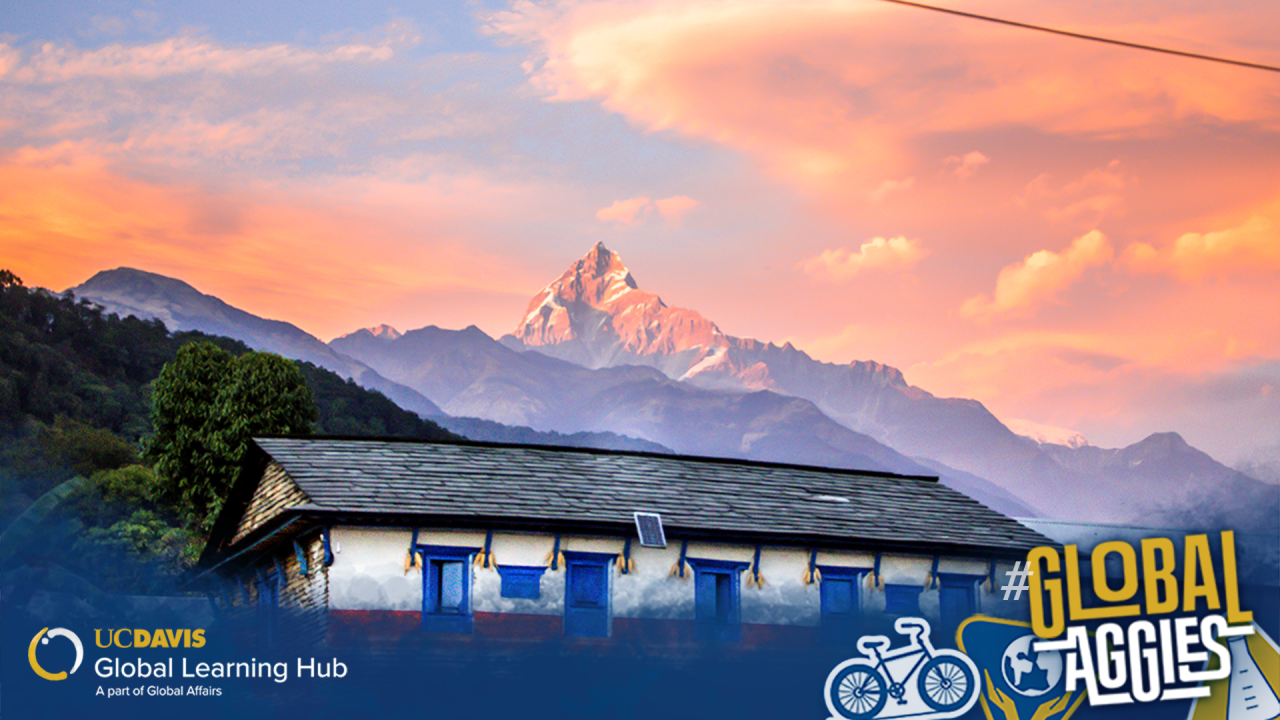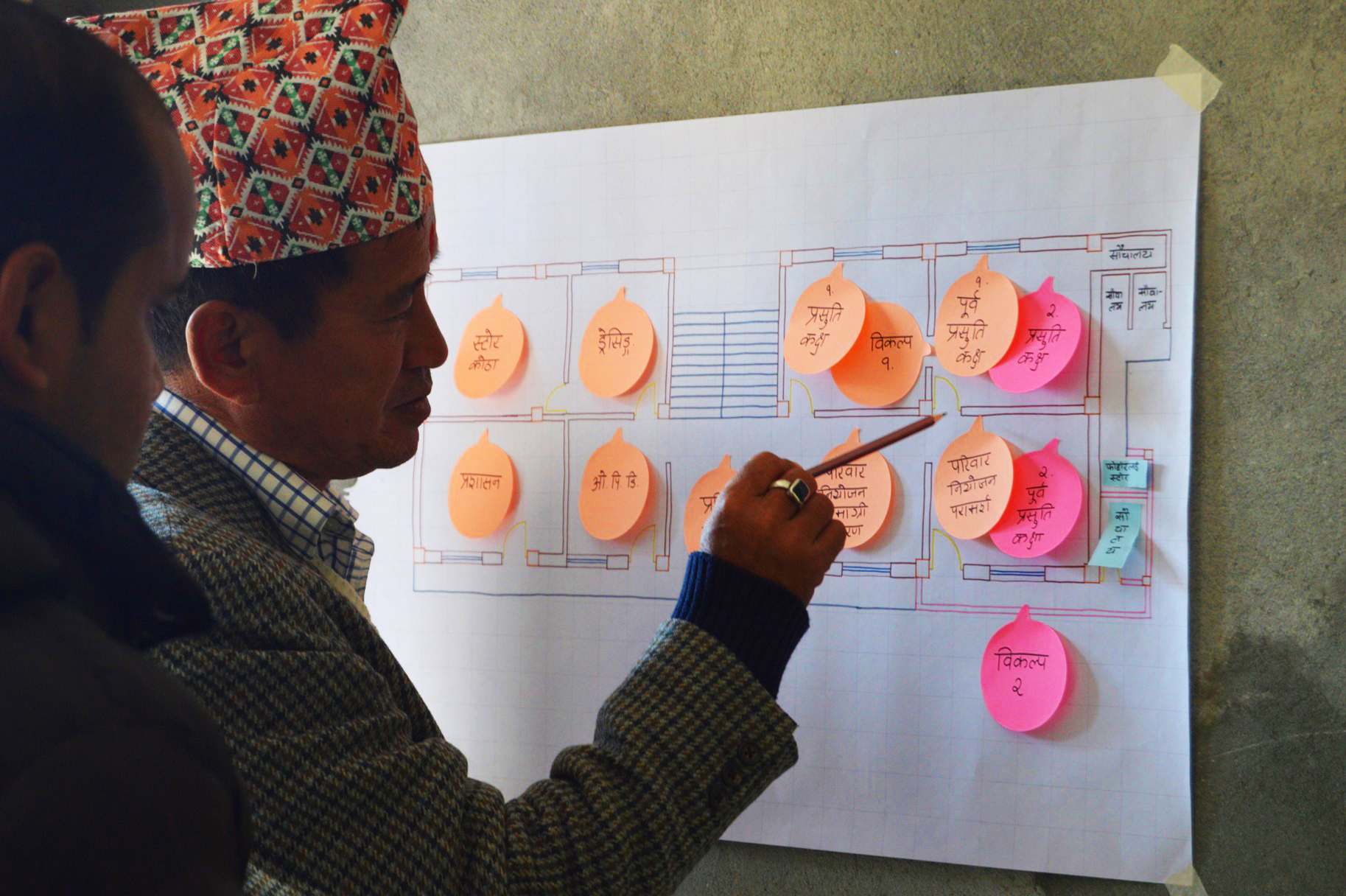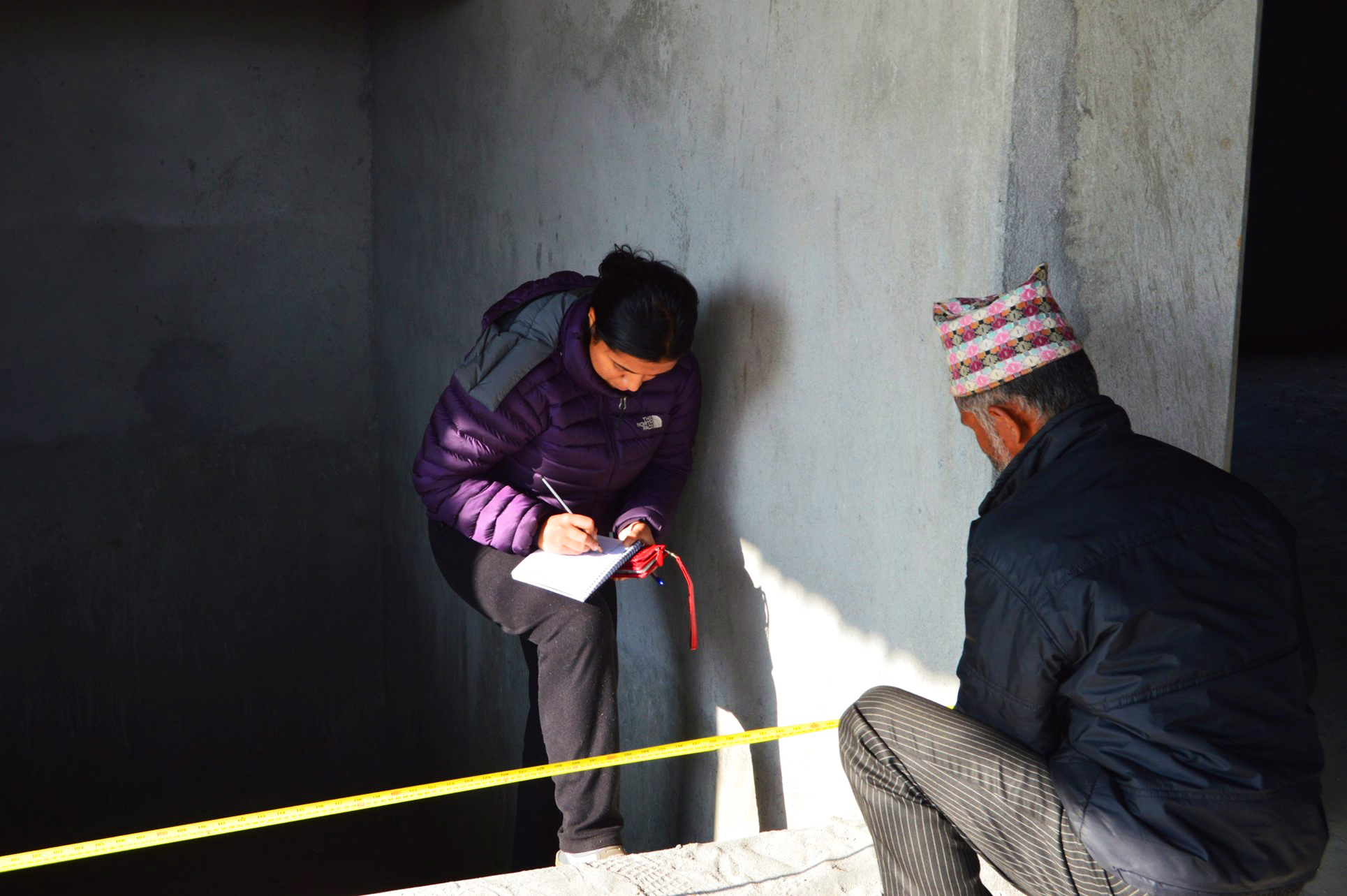
Global Aggies: Project-Based Learning with Communities in Nepal
Name
Sudikshya Bhandari
Major/Minor/Field of Study
Geography
Graduation Year
2024
Program Title
Quarter Abroad Nepal—Community, Technology, and Sustainability
What motivated or led you to participate in this this program?
As a participant in the UC Davis Nepal Study Abroad Program from the Nepal student cohort, I was very interested in the program because of its focus on project-based learning. As a Master’s student in sustainable social development, I was looking forward to learning how to work with the communities in their local context. I was also motivated to participate in this program because of the diversity among the students, which was core to the program in terms of discipline, race, language and culture.

What was your experience like in this program? What did you learn?
My experience in this program has been life-changing in many ways. This was the first time I worked with an interdisciplinary team. I realized the significance of working across disciplines while conducting community-engaged projects. Second, I learned how to navigate intercultural experiences, such as communicating with my peers from UC Davis and other institutions from Nepal and building relationships with the community members. Third, the instructors of the program from Nepal and UC Davis were so great in helping us throughout the project. From planning to dissemination, instructors provided valuable feedback on our ideas, motivated us to think critically about how to address the challenges that came our way and created a comfortable environment conducive to learning.
What was the most challenging part of this program and the most rewarding?
The program’s most challenging part was navigating the challenges that would come up during the planning and execution of our ideas for the project. Multiple times, we had to re-work our plans from the beginning to fit within the community context.
The most rewarding part of the program was the final event when we received feedback on the project’s final products from community members and saw how useful the project was to the community!
What’s one of your most memorable experiences?
There are many memorable experiences from the program. But if I had to choose one, it would be the big group dance we performed after the final presentation in front of the community!
What advice do you have for someone considering this program or a global experience, in general? What would you like to share with students who might have similar identities or experiences as you?
I suggest that students apply to this program. This is a once-in-a-lifetime opportunity to meet new people, develop great friendships, use your skills in real-life settings and also get a learning experience outside the classroom. Students must communicate clearly with the instructors and their peers throughout the project. Being more organized, flexible and adaptive to changing situations during the program is also important.
What was your biggest concern in regards to participating in this program? Were you able to overcome that concern, and if so, how? What advice would you give someone who has similar concerns?

My biggest concern regarding participation in the program was knowing how to use my skills best and contribute to the project. I overcame that concern by setting clear expectations with the group members about my role in the team. I also sought advice from my mentors about combining my skills with other teammates. To someone with similar concerns, it is imperative to think about how you can assist other team members in their areas of expertise to achieve a common and successful goal. Remembering that teamwork is crucial and required throughout the program is very important.
What is something you wish you knew before joining this program? If knowing this previously, how do you think this would have impacted your experience?
I wish I had known more about project-based learning before joining the program. If I had known this previously, I would have done some more preliminary preparation to enhance the skills required in my discipline to tailor and use them for the particular site and project.
How do you think your program experiences will benefit you in the future?
I am interested in being a part of academia because I like working in teams, conducting research and working with community members to build different learning methods that contribute to our society. This study abroad program provided me with opportunities to experience all of it. I learned more about the social side of architectural design and research through this program and that is what I see myself doing in the future. I could witness the impact of design as a powerful medium to engage with the community, creating required changes helpful to the local people and contributing to knowledge generation. This has inspired me to pursue a career in community-based research and design.
Please elaborate on any other identities or experiences that impacted your program decisions or time in the program. Is there anything else you would like to share?
I have always been an action-oriented person and a curious learner. In the program, I learned how to best adapt my personality traits to become an effective team member. I learned to become more flexible and not let my action-oriented nature rush other teammates to work faster. I shifted my perspective from trying to achieve daily outcomes to thinking more about learning by reflecting on every phase of the project. As a curious learner, I listened more to the experiences and suggestions of my peers and mentors. Listening to others’ suggestions helped me learn and develop connections with other groups. It also helped me develop patience which is very important for decision-making when actively working on a project with a time limitation.
About the Global Learning Hub at UC Davis
As a part of Global Affairs, the Global Learning Hub aims to inspire global curiosity, understanding, and engagement.
Through the Global Learning Hub, every UC Davis student can find global learning opportunities available on campus, in the region, virtually, and internationally. The Hub offers global learning programs, workshops, and resources that enhance all UC Davis students’ academic and career pursuits through four broad areas of opportunities: Community Engagement; Global Skills and Leadership; Internships and Research; and Study Abroad. UC Davis is committed to preparing the next generation of global problem solvers and change makers. As such, we aim to prepare our undergraduate, graduate, and professional students to solve global challenges collaboratively, equitably, and sustainably.